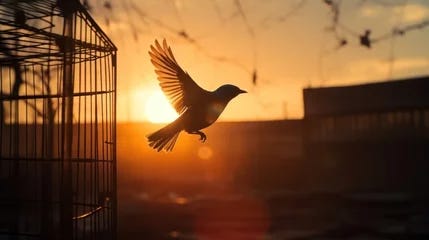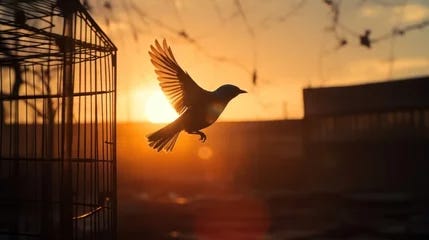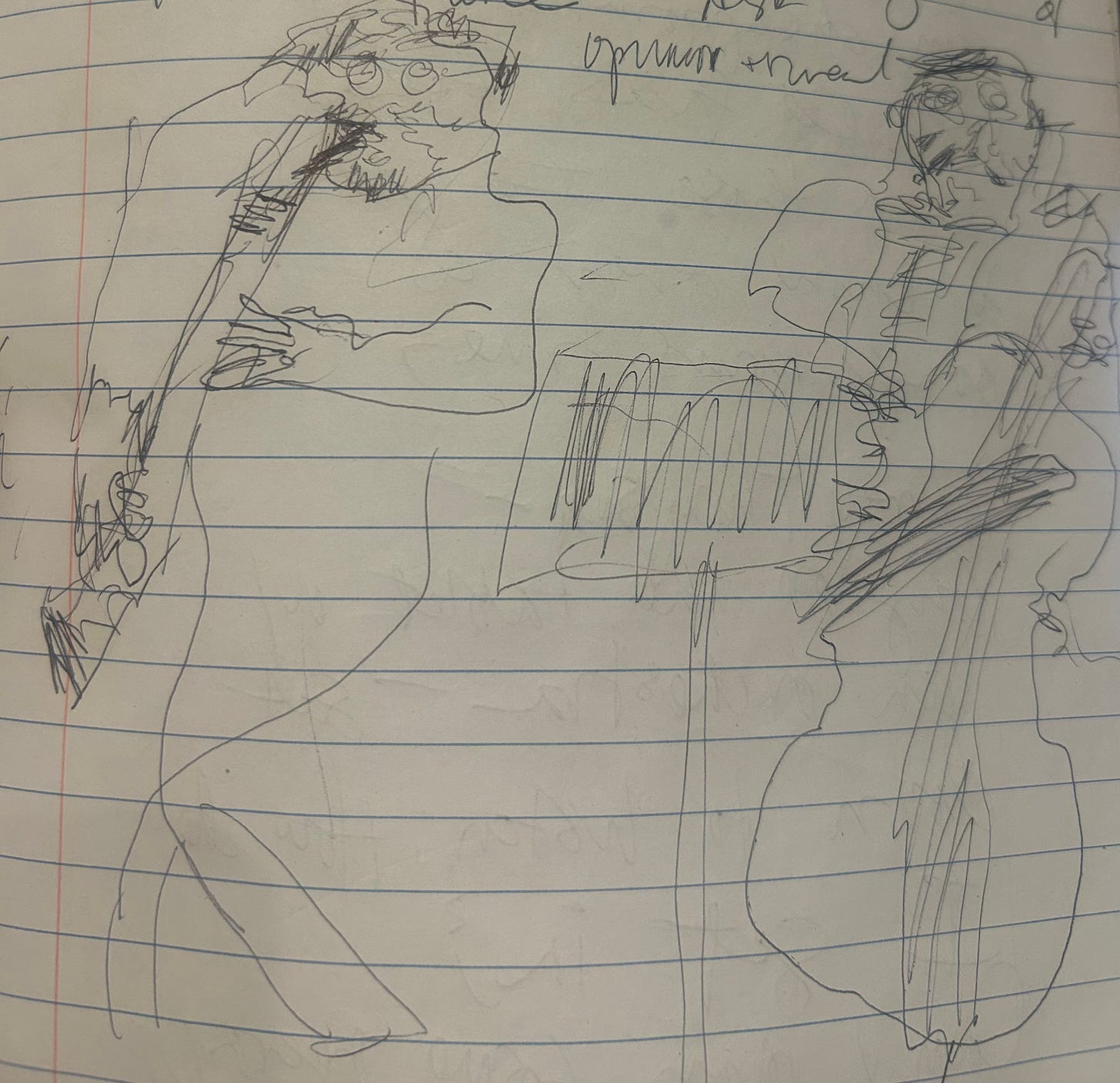Music Brings Soaring Joy to Sing Sing
Rhythm heals, hearkening back to the soothing whoosh we all had in the womb
We are all traumatized.
It is our first and highly catastrophic trauma to be ripped out of the rhythmic waters of the womb, where we’re lulled by the resonant thump of the mother’s heart beat, by the blood flowing through her umbilical arteries, by the rumblings of her digestive system, by the muffled sound of her voice.
And so it is that we seek that melodic rhythm, that deep connection we came to naturally as we were formed. That dark lovely world was all of our beginning, part of all of our origin story, and when it ended, and we were thrust out, the traumas began, from small-scale mishaps to massive catastrophies. And what healing rhythms do we have in the outside-the-womb world to handle them?
At Sing Sing Correctional Facility recently, where I went for the first time to meet the participants of Musicambia’s music education program for my documentary, Harmony Inside & Out, a man sat down next to me in the auditorium and stared into my eyes to tell me that he’d been there for 30 years.
“I want to help the guys think about mindfulness,” Shane told me. “I ask some of the guys who come in, I say, ‘how have you processed the trauma of coming inside, of incarceration?’ And a lot of ‘em say, ‘I haven’t.’”
I nodded and hoped empathy showed clearly in my eyes as I listened, as I nodded in agreement about the importance of finding some way to assist in the difficult process of letting go of the past, of making peace with the present, of not focusing on or fearing about the future. It’s a necessary process for all of us, but it is especially pronounced for people in prison.
My presence there in the midst of a sea of men in state-issued green pants was to support and document what Musicambia offers to them, which is one of the best ‘mindfulness’ practices I know: the making of music. And that’s what they were there to do, both newcomers and long-time participants, 16 men together on a stage, who showed up excited and ready to make music in the shabby facility they forcibly call home.
Since 2019, when I got involved with Musicambia, a nonprofit that brings music lessons and hope inside prison walls, people’s eyes grow wide at the idea of meeting men who are serving time, or have. There is so much fear that rises up in their minds, in their bodies, when I mention it, so much judgment.
And it, sadly, tells me everything these men are up against. It tells me of the divisions we create in our minds between good and bad. It speaks to how disconnected we are with our mutual humanity, to the sameness of our human origin story. It tells me more than I want to know about the dangerous boundaries we build between Us and Them.
And yet I am hopeful that there is some counterbalance possible. And that is what has brought me there, to the Chapel/ Auditorium of the infamous Sing Sing, natural light streaming in only from the spots where the brown paint covering the many small panes of the arched Gothic windows has peeled away over time.
My crew—filmmaker and director Dmitri Borysevicz and sound engineer Gabriel Cyr—were not allowed in, but in some ways it is a blessing, as I can meet and greet the new participants without any intrusion for the first session of a program they’ve been waiting years, what one said “seemed like centuries” to join. They file in shyly, and some take my hand as we introduce ourselves. They share generously with me the reasons they are there. Many of them play instruments already—the guitar, the bass, piano, vocals—but they want to get better, learn to compose maybe, collaborate more.
“Music is the common thread that connects everyone,” Samson, a newcomer, gave as reasoning for his participation. He told me he’d been to every Musicambia concert during his 10 years at Sing Sing, but has waited eagerly to get in to the program.
The morning session is beautiful. Brad Balliett, a bassoonist and teaching artist with Musicambia, champions the teaching alone since paperwork snafus kept out Sarah Goldfeather, a violinist and fellow teaching artist who was supposed to join. On Saturdays for the foreseeable future, Musicambia is not able to get into the regular classroom where the instruments are due to staffing shortages. But despite the setbacks, Brad is amazing at putting the men at their ease, at bringing them together with a fun warm-up he tells me later “works every time.”
It certainly worked with this group, handily whipping the guys into a joyous mad frenzy trying to keep up with the fast-paced singing of the Dr. Seuss rhyme, “Many mumbling mice are making merry music in the moonlight, mighty nice.”
He also asked them to offer up a loud exhalation and throw up their arms, then turned that into a wave that wound one direction, then another, then back, after which the men dissolved in joyous laughter.
At the lunch break, I ask him to describe a bit about the session, including the great “Take A Stand” exercise he employed to build dialogue and reasoned dissension, since we were sadly not able to record the camaraderie and merriment he created.
He talks about it and about his longtime work with music in prisons along with Hamilton Barry, a cellist and Musicambia teaching artist, who joined for the afternoon session. Cell-phone filming and noise aside, I love what they say!
Just after lunch, making it through security and waiting for the participants to join, I sit and listen as Brad and Hamilton fill the vast cavernous space with the deep rich tones of their beautiful woodwind and string instruments.
I am so frustrated about not being able to portray the scene on film that I make a crude drawing….
They play a piece composed by a participant known as Yoshi, a long-time Musicambia musician who I’ve seen featured in videos for years and had just met in person for the first time during the brief morning session. Brad has been bringing Yoshi’s compositions out into the world, to places like Trinity Church and Carnegie Hall. A CD of his compositions has been recorded and will, hopefully, come out next year.
Brad spoke about his teaching inside prisons and performed one of Yoshi’s compositions, “Poetic Distance Suite,” Oct. 2nd at The Peabody Institute at John Hopkins University, where he is on the faculty.
Musicambia’s goal is to bring more and more of their students’ compositions outside the prison walls.
It is to that end, to creating composers of these men, that the afternoon is dedicated. When the participants finally arrive and are seated on stage, Brad and Hamilton play a couple songs, including a 300-year-old Bach piece. Then the play Yoshi’s piece, revealing only afterward that it is his, and he bows his head, accepting the gracious applause.
Then, it is everyone else’s turn. They ask the gentlemen to offer up “four-note ideas,” what they call “seeds” of their own compositions, whether notated on composition paper as some well know how to do, or are just learning, or —if it’s easier for them —just to say it, or sing it, “barf it out,” they joke.
Yoshi suggests Samson offer up something he’d written earlier and, after some coaxing, he hands off the paper he’d jotted some ideas down on and his ideas are suddenly a beautiful song. I watch the pride grow on his face, his lips lift into a smile. Gone were thoughts of what had happened, what would happen. He was here, now, his music played out for all to hear.
“I’m a natural,” he jokes when the music stops, and everyone laughs.
“To be a creative artist requires the ego to think you have something worth sharing, but we want less diva, more ‘what I make is worth it,’” Brad had said during the Community Agreements discussion, where together they agreed to respect each other’s ideas, try ideas at least once, and to have fun! (“Music can be spiritual, it can be profound, it can be serious, but it should be fun!” he’d said.)
“Trust in each other for musical material,” he told them. “Challenge yourself. If it’s easy, try harder.”
Others share too, Paul who has been in the program a long while and whose compositions, like Yoshi’s, are being played out in the world, and John who is new, and wants to learn to play the piano.
The men are asked as their notes are played to offer the musicians suggestions of the speed and feeling their songs should reflect.
“Slow, and mellow, for cello only at first, so it sounds sad,” one composer suggests.
Then it is time for participants to break away and work on their own to compose, or to work with Brad—who is offering basic notation skills for newcomers—or Hamilton, who will work with the more experienced string players, including Joe, a long-time cellist with the program, who tells me about “The Price of Freedom,” the three-movement piece he is composing about a group of incarcerated men in Milan, Italy he read about who are making cellos out of the remains of sunk migrant ships.
“My cello is my healing,” Joe tells me. “I’m bi-polar,” he said, “and playing cello has given me the best, happiest 10 years of my life.”
I spend my time helping Johnny, who is Dominican and whose first language is Spanish, edit a song he has written in English. He wants me to help him find the melody on the keyboard, which I try to do, but am better with the pen he has handed me to try to simplify his words about heartbreak and being restored by the Lord, and to make them rhyme.
And then, suddenly, we are being summoned, the guard’s keys clanking by her side like a chime as she walks through the auditorium toward us telling us it’s time to go, the van is waiting. We have to leave.
“Make sure you’re working on something for the next session!” Hamilton yells out as he gathers his things. “Remember, our concert is November 7th!”
And I am sad to leave and grateful I will be back, hopefully next time with a camera to be able to share how beautiful and healing it can be for humans to come together to make music, to find a creative way to compose their identities anew through song. However ugly the circumstances, one’s heart soars high like a bird when bearing witness to that.
I will continue to share the process of making this documentary, and also try to link to other music and art events that motivate and inspire. I would love your support now as I embark on this project, so please become a paid subscriber if possible, any amount counts!!
Thanks for reading, and would love your feedback as well!
In peace & harmony.
XX
Steph Saull Thompson




